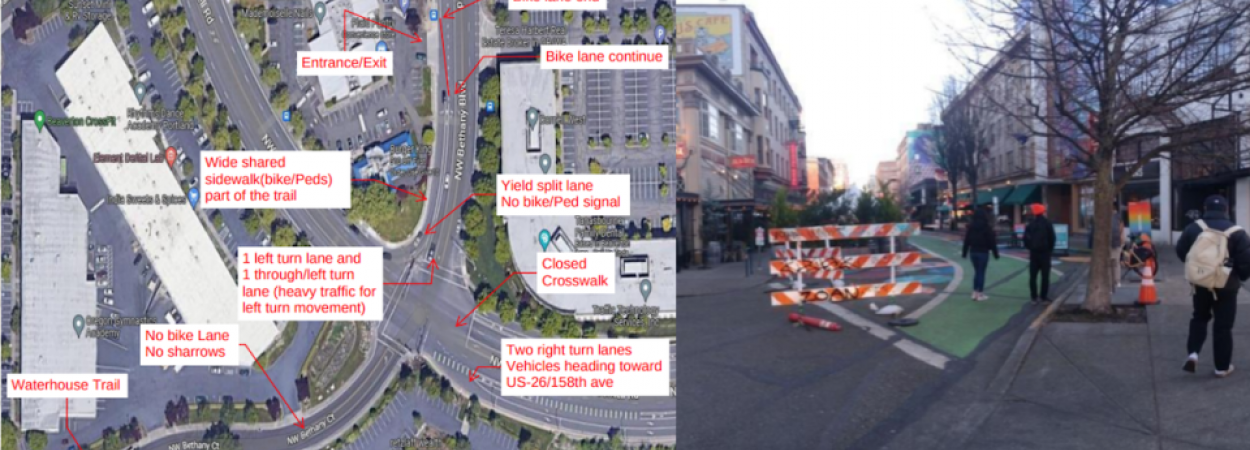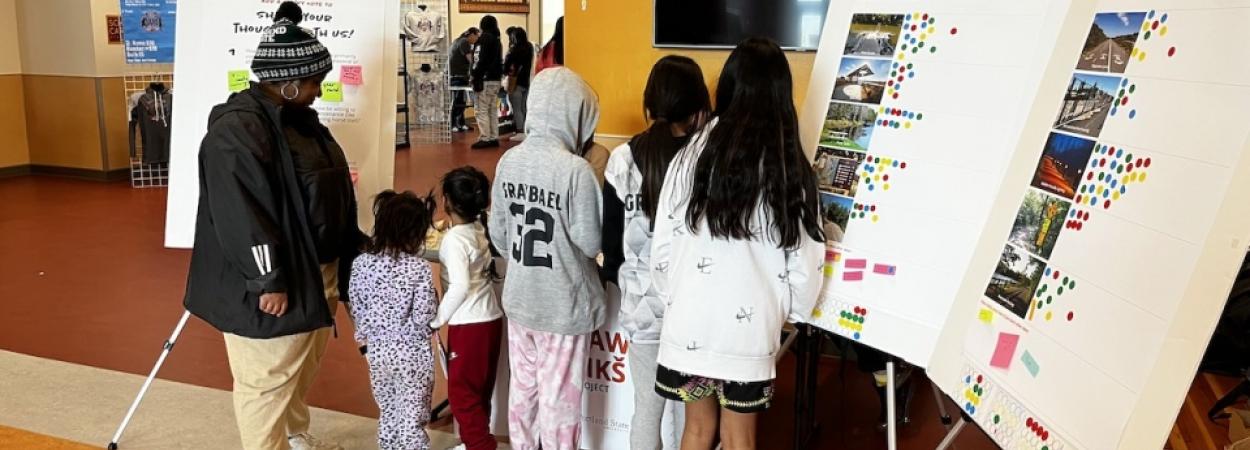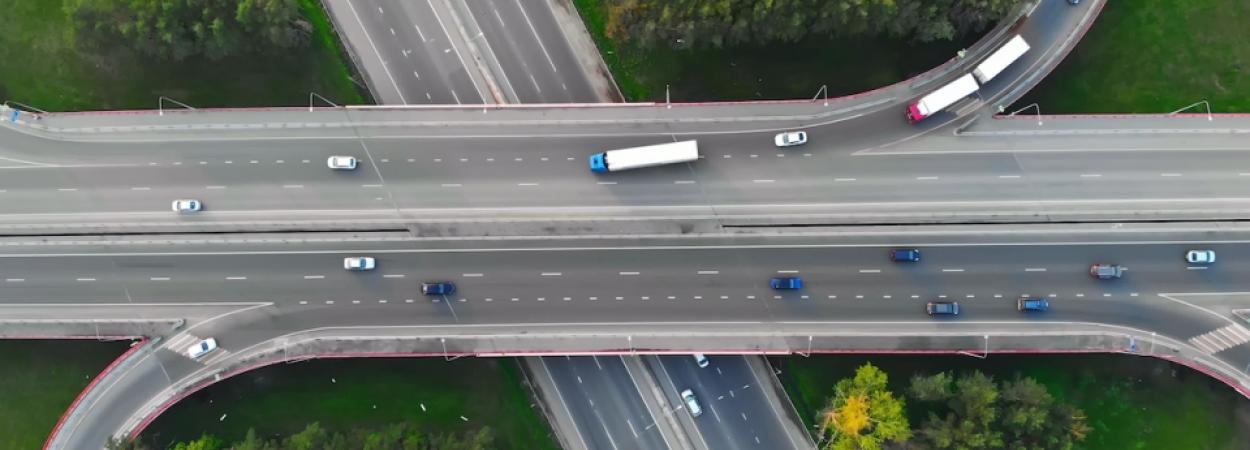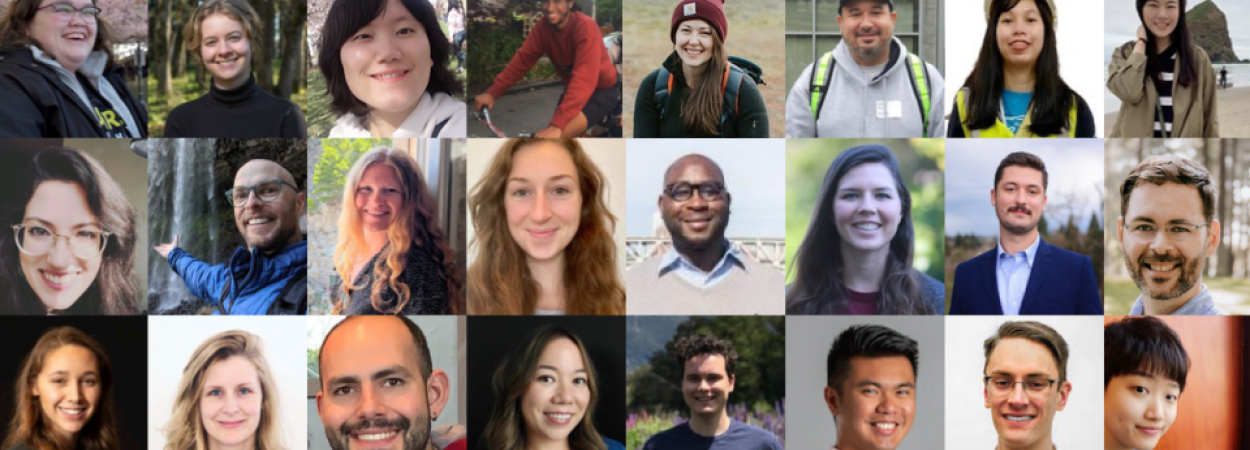 |  |  |

Each year, Portland State University (PSU)'s graduating seniors work on capstone projects: community-based learning experiences throughout the Portland metropolitan region and beyond. This past spring, two student groups in the Maseeh College of Engineering & Computer Science focused their capstone projects on sustainable transportation, and we'd like to take a moment to highlight their outstanding work. Both projects were completed as part of the Civil Engineering Project Management and Design course taught by PSU instructor Patrick McLaughlin, and each takes a different approach to enhancing safety and accessibility for people walking and riding bicycles in Portland. Read on to learn more about the students and their projects.
BikeLoud Day: Living Streets Downtown
Team: Rashid Abdussamad, Chri…
Read More
How can emerging data sources most effectively be integrated with traditional sources? A new article in the July 2023 issue of Transportation Research Record: Journal of the Transportation Research Board reports that rather than replacing conventional bike data sources and count programs, old “small” data sources will likely be very important for big data sources like Strava and StreetLight to achieve their potential for predicting annual average daily bicycle traffic (AADBT).
The article, "Evaluating the Potential of Crowdsourced Data to Estimate Network-Wide Bicycle Volumes," was authored by TREC researchers Joe Broach, Sirisha Kothuri and Nathan McNeil of Portland State University along with Md Mintu Miah, Kate Hyun and Stephen Mattingly of the University of Texas at Arlington, Krista Nordback of the University of North Carolina, Chapel Hill; and Frank Proulx of Frank Proulx Con…
Read More
As the 2023 Spring term wraps up at Portland State University (PSU), we're taking a moment to appreciate the work done by students finishing up their transportation engineering and planning programs. See below for a recap of some outstanding projects from graduating Master of Urban and Regional Planning (MURP) students in PSU's Toulan School of Urban Studies and Planning.
Team: Victoria Young, Jenny Mazzella, Nick Hadfield, Brian Liu, Sara Goldstein, Owen Christofferson
In this project, the student team partnered with the planning office of the Confederated Tribes of the Umatilla Indian Reservation to plan a multi-use trail to improve walkability and connectivity in the community. "We are consulting with the tribal government to build a multi-use path that would connect a neighborhood in the reservation called "Mission" where there is commercial activity as well as a government c…
Read More
Portland State University (PSU) has been awarded a new contract by the National Cooperative Highway Research Program (NCHRP). To create a "Guide for Addressing Encampments on State Transportation Rights-of-Way," $350,000 in research funding will go toward developing a set of best practices to help state transportation agencies respond to temporary encampments on state transportation rights-of-way. These areas, including paved roads, bridges, and other transportation facilities managed by the state, are often some of the most accessible public land for people to occupy who have nowhere else to go.
A growing trend of encampments on state rights-of-way has presented unprecedented challenges for state departments of transportation (DOTs) in the design, construction, and maintenance of transportation facilities. As owners of some of the largest stretches of public land, DOTs must maintain the land fo…
Read More
Twenty-nine Portland State University students have been awarded National Institute for Transportation and Communities (NITC) scholarships for the 2022/23 academic year. We're very proud to acknowledge their hard work and dedication. The NITC Scholarship program recognizes outstanding students working on transportation projects. Financial support for students helps to develop the workforce by directing talented individuals toward research and practice, raising the number and caliber of graduates in transportation.
Mackenzie Aamodt is a student in the Masters of Urban and Regional Planning (MURP) program at Portland State University. Growing up in the Pacific Northwest and having access to green spaces, trails, and bike paths heavily influenced her decision to pursue a planning career. What interests…
Read More